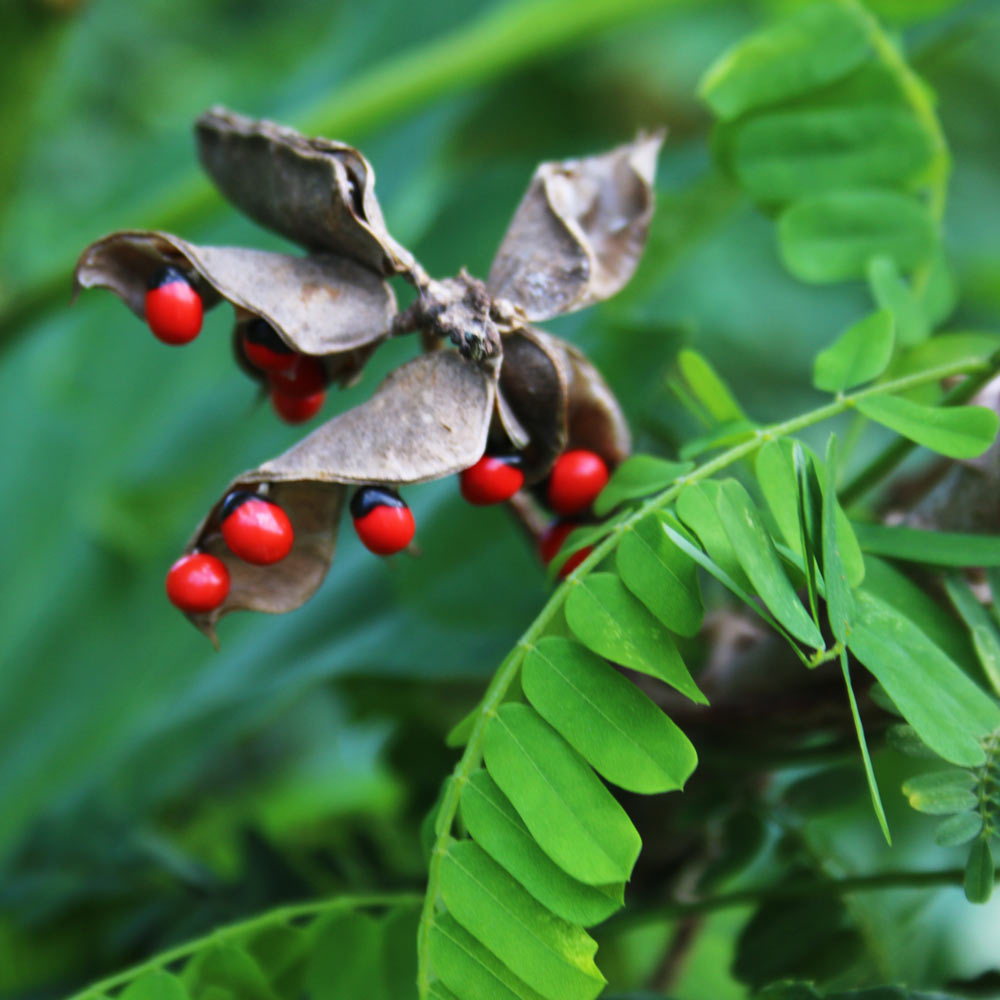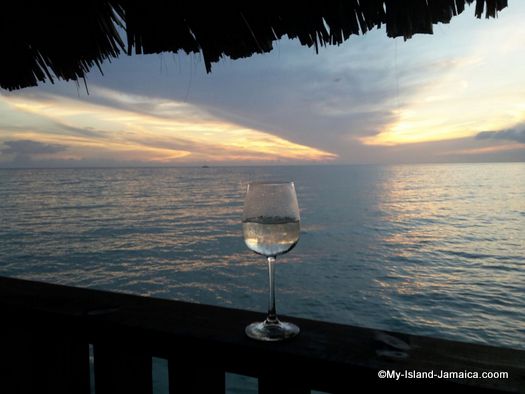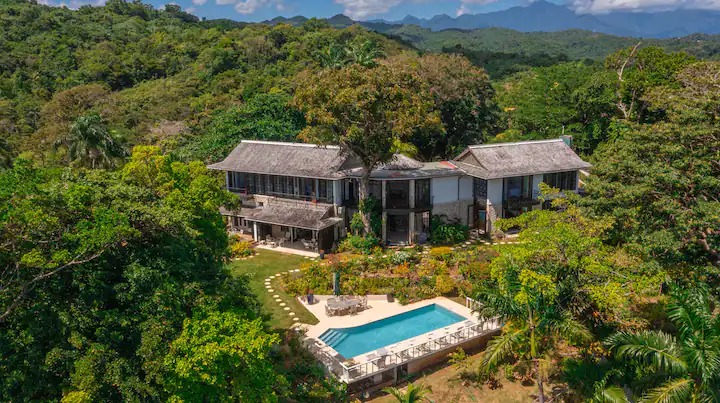Subscribe for all my updates and don't miss a thing! Sign me up!
Jamaican Wild Licorice
Sharing Is Caring! Share this awesome content with your friends now.
By Venesha Johnson | Associate Writer
No matter the ailment, a Jamaican is bound to tell you the right locally sourced herb to restore your health. Though all medical advice not issued by a medical professional should be taken with at the very least a caution, in many cases they are correct. Jamaica is home to a wealth of indigenous flora, including the Jamaican Wild Licorice plant, scientifically known as Abrus precatorius. This unassuming plant, with its vivid red seeds, holds a rich history of traditional uses, medicinal benefits, and a notorious reputation for its toxic seeds.
New! Take a piece of Jamaica with you💃!
Savour the memories! Now you can get your authentic Jamaican souvenir items, as well as traditional Jamaican herbs, spices and housewares on our popular e-store. Click Here to learn more.
And, if you ever need a trustworthy and knowledgeable local guide, consider booking a private tour with us!
Common names for Abrus Precatorius include jequirity, Crab's eye or rosary pea, paternoster pea, love pea, precatory pea or bean, prayer bead, John Crow Bead, coral bead, red-bead vine, and country, Indian, wild, and Jamaican Licorice.
Medicinal Benefits
Jamaican Wild Licorice, or Abrus precatorius, has a long history of medicinal use in traditional Jamaican and Caribbean folk medicine. The leaves of the plant are used for various medicinal reasons including:
- Fever Reducer: The leaves of the Jamaican licorice have been used to reduce fever symptoms, making it a valuable resource for combating tropical diseases.
- Anti-Inflammatory: Traditional healers have employed the plant to alleviate inflammation and ease the discomfort associated with conditions like arthritis.
- Pain Relief: The plant's roots have been used to create herbal remedies to relieve pain, making it an essential component of traditional Jamaican pain management.
- Respiratory Health: Infusions made from the leaves have been employed to treat respiratory ailments such as coughs and bronchitis.
- Wound Healing: Jamaican Wild Licorice has also been used topically to promote wound healing due to its potential antimicrobial properties.
- Diabetes: while not many scientific studies have looked into this, traditional remedies suggest that Jamaican licorice has remarkable properties that significantly reduce blood sugar levels.
Traditional Uses
Beyond its medicinal properties, Jamaican Licorice has many traditional benefits, especially in other parts of the world such as India.
- Rituals and Spirituality: In some cultures, the vibrant red seeds of the Abrus precatorius plant have been used in spiritual rituals and as charms to ward off evil spirits. They are often strung into jewelry, known as "grains of paradise," and worn as protective amulets.
- Traditional Dyes: The plant's roots have been used to create natural dyes for fabrics, contributing to the rich tapestry of traditional Caribbean textiles.
Toxic Seeds
While Jamaican Wild Licorice boasts numerous medicinal benefits and cultural significance, it also harbours a potentially deadly secret—the seeds of Abrus precatorius are highly toxic. As a matter of fact, the seeds have earned their own nickname, Johncrow Eyes. These small, red seeds contain a substance known as abrin, which is similar in nature to ricin, a well-known toxin.
The toxicity of abrin is such that even a single seed ingested or chewed can lead to severe poisoning. Symptoms of abrin poisoning can include nausea, vomiting, diarrhoea, seizures, and, in severe cases, death. As a result, the seeds of the Jamaican Wild Licorice plant are considered one of the most toxic plant materials in the world.
History of Using the Seeds
Despite their toxicity, the seeds of Abrus precatorius have a dark history of use in various regions around the world:
- Poisoned Arrows: Historically, indigenous tribes have coated their arrows with crushed Abrus precatorius seeds. When these poisoned arrows struck their targets, the potent toxin could quickly incapacitate or kill animals or enemies.
- Assassination Tool: In some historical accounts, the seeds of Jamaican Wild Licorice were used as a means of assassination. The tiny seeds could be concealed in food or drink, leading to the poisoning of unsuspecting victims.
The Jamaican Wild Licorice plant is a fascinating botanical specimen that showcases the diverse interplay between traditional medicine, cultural practices, and the potential dangers of nature. While it offers a range of medicinal benefits and plays a significant role in Jamaican culture, its toxic seeds serve as a stark reminder of the need for caution and respect when interacting with the natural world. As with any medicinal plant, it is essential to consult with experts before attempting to utilize Abrus precatorius for any purpose, ensuring that its potential benefits are harnessed safely and responsibly.
Check out the video below where Dr. Ben Israel shares with us a wealth of knowledge about Jamaican herbs, including the Jamaican Licorice.

Sharing IS Caring! Please help me get the message out by sharing this article with your friends on social media (links below). Thnx ;-)
If you found this page useful, please consider subscribing to my weekly newsletter, to get even more.
It tells you each week about the new information that I have added, including new developments and great stories from lovers of Jamaica!
Return to Jamaican Herbs from Jamaican Wild Licorice
Return to My Island Jamaica Homepage from Jamaican Wild Licorice
References & Sources For Jamaican Wild Licorice
- Abrus precatorius. (2023, August 9). Wikipedia. https://en.wikipedia.org/wiki/Abrus_precatorius
- Abrus Precatorius. Jamaica licorice. | Henriette’s Herbal Homepage. (n.d.). https://www.henriettes-herb.com/eclectic/cook/ABRUS_PRECATORIUS.htm
New! Get My Latest Book👇🏿
|
You asked, I've answered! You no longer need to save for months or years, to enjoy paradise! I spilled the beans! sharing my top tips on finding cozy accommodations and secret gems, only the way a native could! Click Here to pick it up on my e-store and start saving now! |
See The Best Of Jamaica - In Videos!
|
My channel reaches over 140,000 subscribers worldwide and has leveraged over 11 million views, sharing, what I call 'The Real Jamaica'. Subscribe today and join our family of viewers. |
Read More ...
New! Experience The REAL Jamaica!
Book Your Private Tour here and experience Jamaica the way we (locals) do!
P.S. Didn't find what you were looking for?
Still need help?
Click Here to try our dependable and effective Site Search tool. It works!
Or, simply click here and here, to browse my library of over 500 questions and answers! Chances are someone already asked (and got an answer to) your question.
















New! Comments
Have your say about what you just read! Leave me a comment in the box below.